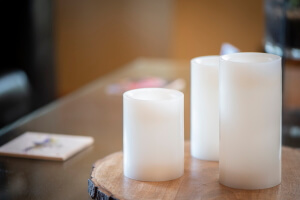
It is more than likely that you have heard the term “Mindfulness” in recent years. It is a term that is often mentioned in social media, in conversation, and definitely in the world of mental health over the past decade or more. But what does it mean? Is it something you DO? Is it something you FEEL? Is it a way of THINKING?
Simply stated, Mindfulness can be defined as being in the present, with moment-to-moment awareness, and without judgement. What does this mean?!?!?!
It means paying attention on purpose to the whole of your experience in any given moment, rather than only aspects of it. This includes thoughts, emotions, physical sensations, and external stimuli such as sights, sounds, smells. It means that every moment of every day is an opportunity to be conscious, aware, and grounded in the present moment. This is called the informal practice of mindfulness.
Let me share an example most of us can relate to……. imagine yourself waking up in the morning to your alarm clock, jumping out of bed, going through your morning routine, and rushing out the door to begin your commute in the joys of Calgary traffic, perhaps stressed or panicked about arriving to work on time. Sound familiar? This may be a daily routine you go through without putting much thought to it. This is what we call being in auto-pilot. Going through the motions of your day without giving much attention to what’s actually happening in the moment. How do feel when you first open your eyes in the morning? What do you notice about your body? What are you thinking about? What are you telling yourself? Are you in the present, or are you thinking about the meeting you have later today? What do you notice about your bedroom? How does that first coffee of the day taste?
These are all small ways of paying attention, on purpose, to our moment-to-moment experience. And when we are really able to bring these things into awareness, it leads to much richer experiences and creates a greater sense of well-being. Jon Kabat-Zinn, considered a pioneer in the field and credited with bringing Mindfulness to western medicine, often describes mindfulness as a process of “falling awake”. It is the opposite of auto-pilot.
Let’s talk about the judgement aspect of mindfulness. How often do you find yourself passing judgement on your experiences? This is good. This is bad. I like this. I don’t like this. I’m comfortable. I’m uncomfortable. We are taught from an early age to label or categorize our experiences, in an effort to make sense of ourselves, others, and the world. For example, we label certain thoughts as “good” or “bad”, certain emotions as “positive” or “negative”, and certain experiences as “pleasurable” or “unpleasurable”. Mindfulness encourages us to detach from these labels and simply be witness to our own experience without judgement. It is about embracing ALL that we consider to be good or bad, positive or negative, comfortable or uncomfortable. It encourages us to shift our relationship to what we perceive to be discomfort, pain, or suffering. It is about shifting your relationship to your own thoughts and feelings. It is about changing your relationship to yourself and your experience of being. This is what Jon Kabat-Zinn calls embracing the Full Catastrophe of life.
I want to share with you a poem that is dear to my heart and was first introduced to me by Dr. Kabat-Zinn…… hope it resonates for you.
Love after Love
The time will come
when, with elation
you will greet yourself arriving
at your own door, in your own mirror
and each will smile at the other's welcome,
and say, sit here. Eat.
You will love again the stranger who was your self.
Give wine. Give bread. Give back your heart
to itself, to the stranger who has loved you
all your life, whom you ignored
for another, who knows you by heart.
Take down the love letters from the bookshelf,
the photographs, the desperate notes,
peel your own image from the mirror.
Sit. Feast on your life.
By Derek Walcott